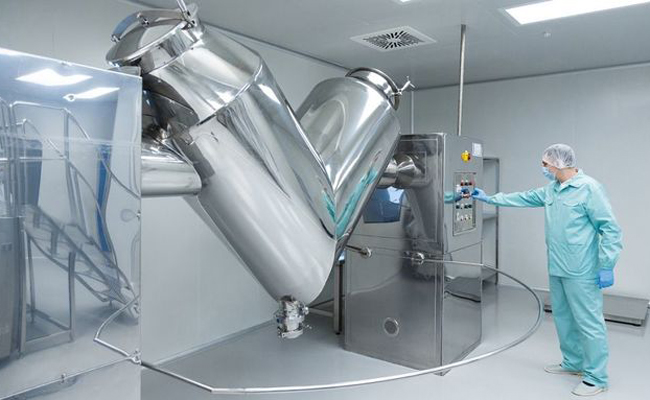BS-712GR Metal Cutting Bandsaw
Cutting Capacity :
The chemical industry relies heavily on efficient mixing solutions to ensure product consistency, quality, and safety. One of the most critical pieces of equipment in this sector is the dry powder mixing machine. Whether you’re blending additives, pigments, pharmaceuticals, or industrial chemicals, choosing the right mixer can make or break your production process.
we’ll explore how dry powder mixers work, their key benefits, different types available, and how to select the best one for your chemical applications.

How Does a Dry Powder Mixing Machine Work?
Dry powder mixers are designed to blend solid particles uniformly without the need for liquids. They use mechanical agitation to combine different powders, ensuring a homogenous mixture. The process typically involves:
Loading – Raw materials are fed into the mixing chamber.
Mixing – Blades, paddles, or rotating drums agitate the powders for even distribution.
Discharge – The blended product is released for further processing or packaging.
The efficiency of the mixer depends on factors like speed, mixing time, and the nature of the powders being blended.
Key Benefits of Dry Powder Mixers in the Chemical Industry
Consistent Blending – Ensures uniform distribution of ingredients, critical for product quality.
Time & Cost Efficiency – Reduces manual labor and speeds up production.
Versatility – Handles a wide range of powders, from fine chemicals to coarse granules.
Minimal Waste – Prevents segregation and ensures complete mixing, reducing material loss.
Scalability – Suitable for small lab batches or large-scale industrial production.
Types of Dry Powder Mixing Machines
Different mixing applications require different types of equipment. Here are the most common dry powder mixers used in the chemical industry:
1. Ribbon Blender
Uses helical ribbons to mix powders in a horizontal trough.
Ideal for free-flowing and semi-cohesive powders.
Common in food, pharmaceuticals, and bulk chemical blending.
2. Paddle Mixer
Features rotating paddles for gentle yet thorough mixing.
Works well with fragile or heat-sensitive materials.
Often used in fertilizers and specialty chemicals.
3. V-Cone Blender
Uses a rotating V-shaped container for tumbling action.
Best for small to medium batches with minimal shear.
Popular in pharmaceutical and cosmetic powder blending.
4. Plow Mixer (High-Shear Mixer)
Utilizes high-speed plow-shaped blades for intense mixing.
Effective for cohesive powders requiring strong agitation.
Used in adhesives, pigments, and construction chemicals.
5. Fluidized Bed Mixer
Uses air to fluidize powders for ultra-uniform blending.
Excellent for ultra-fine powders prone to clumping.
Common in advanced chemical and pharmaceutical applications.
How to Choose the Right Dry Powder Mixer
Selecting the best mixer depends on several factors:
✔ Material Properties – Particle size, density, flowability, and abrasiveness.
✔ Batch Size – Small lab batches vs. large industrial volumes.
✔ Mixing Speed & Time – Some powders need gentle blending, others require high shear.
✔ Contamination Risks – Stainless steel or coated surfaces for sensitive chemicals.
✔ Cleaning & Maintenance – Easy-to-clean designs for frequent product changes.
Applications in the Chemical Industry
Dry powder mixers are essential in various chemical sectors, including:
Pharmaceuticals – Blending active ingredients and excipients.
Agrochemicals – Mixing fertilizers, pesticides, and herbicides.
Paints & Coatings – Combining pigments and additives.
Plastics & Polymers – Distributing fillers and colorants.
Food Additives – Ensuring even flavor and nutrient distribution.
A dry powder mixing machine is a crucial investment for any chemical processing plant. The right mixer improves efficiency, reduces waste, and ensures product consistency. Whether you need gentle blending for fragile powders or high-shear mixing for tough materials, there’s a solution for every application.
Before purchasing, assess your material characteristics, production volume, and cleaning requirements to find the best fit. Investing in a high-quality mixer will pay off in long-term performance and product quality.
Looking for a reliable dry powder mixer? Consult with industry experts to find the perfect model for your chemical blending needs.
Cutting Capacity :
Cutting Capacity :